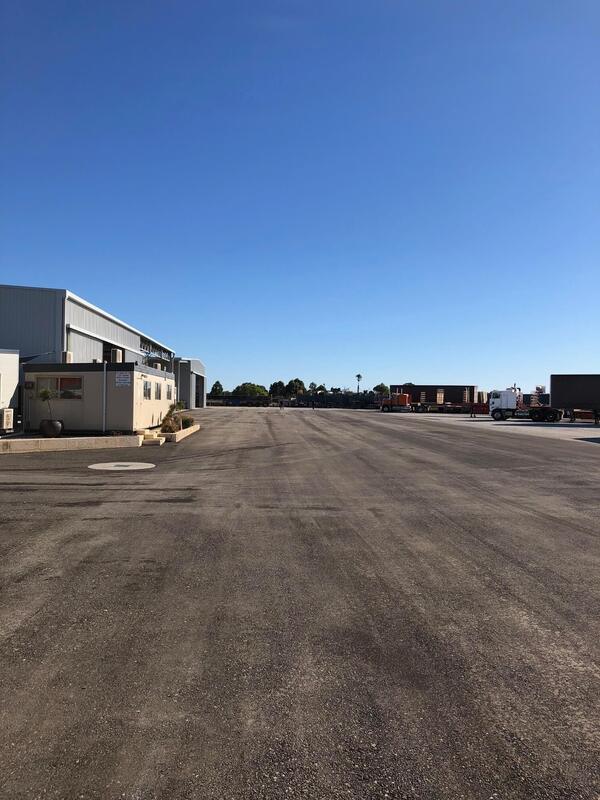Asphalt resurfacing is a practical, cost-effective solution for restoring damaged roads, driveways, and car parks. It extends the life of asphalt surfaces, enhances safety, and improves aesthetics without the need for a full replacement. At Blayney Road Tek, we specialise in delivering high-quality asphalt resurfacing services to properties in Blayney, NSW. Here’s an in-depth look at how asphalt resurfacing works and why it’s essential for maintaining durable and functional surfaces.
What is Asphalt Resurfacing?
Asphalt resurfacing, also known as overlaying, involves adding a new layer of asphalt over an existing surface. This process restores the surface’s strength, smoothness, and appearance while addressing minor damage such as cracks, potholes, and uneven areas.
Key Steps in the Resurfacing Process
1. Inspection and Assessment
Before resurfacing begins, a thorough inspection of the existing asphalt is conducted to evaluate its condition. This assessment identifies any structural issues that need to be addressed before the overlay is applied.
2. Surface Preparation
Preparation is critical to the success of the resurfacing process. The surface is cleaned to remove dirt, debris, and loose material, ensuring proper adhesion. Any cracks, potholes, or damaged areas are repaired to create a stable base for the new layer.
3. Milling (Optional)
In some cases, the top layer of the existing asphalt is milled or removed to ensure the new layer adheres properly and aligns with the surrounding surface. Milling also helps improve drainage and eliminates uneven areas.
4. Application of New Asphalt Layer
A fresh layer of asphalt is applied evenly across the surface, using specialised equipment to ensure a smooth finish. The thickness of the new layer depends on the specific requirements of the project.
5. Compaction and Finishing
The newly applied asphalt is compacted using rollers to eliminate air pockets and create a durable, uniform surface. Once compacted, the surface is left to cure and harden before it’s ready for use.
Why Asphalt Resurfacing Matters
1. Extends the Life of the Surface
Resurfacing addresses surface-level damage and prevents minor issues from escalating into costly repairs or complete replacements. By adding a protective layer, resurfacing strengthens the existing asphalt and extends its lifespan by several years.
2. Cost-Effective Solution
Compared to full asphalt replacement, resurfacing is a more affordable option that delivers excellent results. It allows property owners to restore the functionality and appearance of their surfaces without incurring the high costs associated with starting from scratch.
3. Enhances Safety
Damaged asphalt surfaces with cracks, potholes, or uneven areas can pose safety risks to drivers, cyclists, and pedestrians. Resurfacing eliminates these hazards, providing a smooth, level surface that enhances safety and reduces the likelihood of accidents.
4. Improves Aesthetic Appeal
A resurfaced asphalt surface looks clean, uniform, and professional. This improved appearance not only enhances the property’s visual appeal but also leaves a positive impression on visitors, customers, and tenants.
5. Supports Better Drainage
Asphalt resurfacing can correct minor grading and drainage issues, ensuring that water flows away from the surface. Proper drainage is essential for preventing water damage and maintaining the integrity of the asphalt.
6. Eco-Friendly Option
By reusing the existing asphalt base, resurfacing minimises waste and reduces the need for new materials. This makes it an environmentally friendly choice for maintaining and upgrading asphalt surfaces.
When to Consider Asphalt Resurfacing
- Cracks and Potholes: If your asphalt surface has minor cracks and potholes but the base remains intact, resurfacing is an effective solution.
- Ageing Surface: Asphalt surfaces nearing the end of their lifespan but still structurally sound can benefit from resurfacing to restore their performance.
- Fading and Wear: Resurfacing can rejuvenate asphalt that has faded or worn down due to weather and traffic.
- Drainage Problems: Minor pooling or water drainage issues can often be resolved with a properly graded resurfacing layer.
Why Choose Blayney Road Tek for Asphalt Resurfacing?
At Blayney Road Tek, we bring years of experience and expertise to every resurfacing project. Our team uses high-quality materials and advanced techniques to deliver durable, professional results. We work closely with clients in Blayney, NSW, to ensure each project meets their specific needs, whether it’s a residential driveway, commercial car park, or public road.
Conclusion
Asphalt resurfacing is a vital process for maintaining the safety, durability, and appearance of asphalt surfaces. By addressing surface damage and extending the life of the asphalt, resurfacing provides a cost-effective and environmentally friendly alternative to full replacement. At Blayney Road Tek, we are committed to delivering high-quality resurfacing solutions tailored to the unique needs of our clients.
If your asphalt surface needs an upgrade, contact Blayney Road Tek today. Our expert team is ready to provide professional advice and exceptional service to restore your asphalt to its best condition.
Call us on: 02 5301 9087
Click here to find out more about
Click here to complete our contact form and see how we can help with your asphalt and bitumen surfacing needs.

